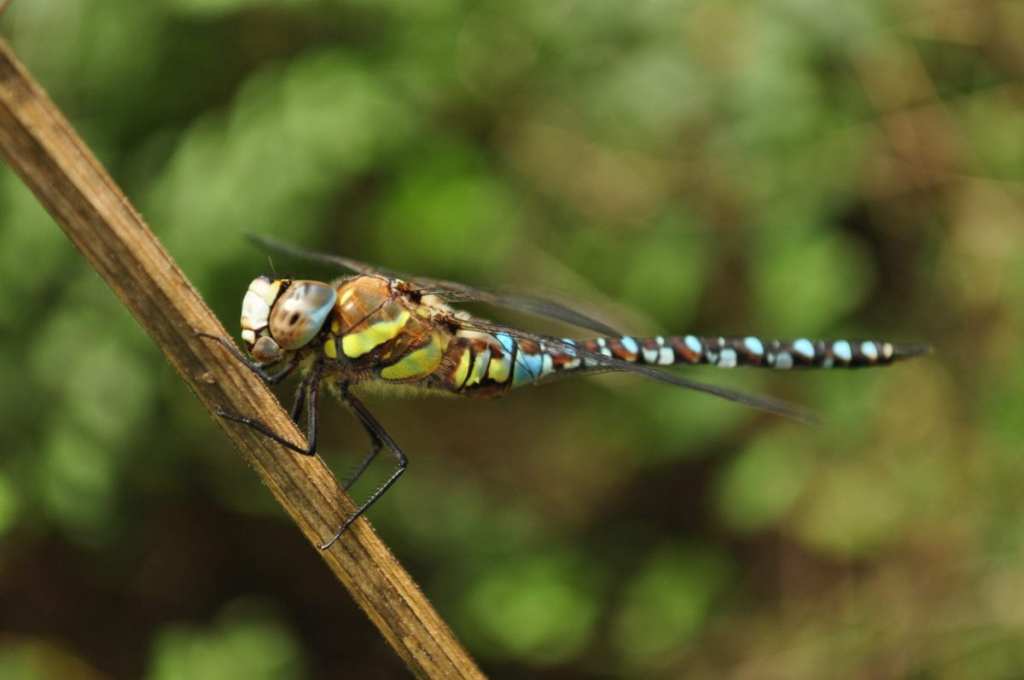On July 5, 2015, zoologist Rassim Khelifa noticed something strange while he was traipsing around the Swiss Alps studying how temperature affects dragonfly larvae. Really strange.
While I was waiting at a pond near Arosa, at about 2,000 meter elevation, I witnessed a dragonfly dive to the ground while being pursued by another dragonfly… the individual that crashed was a female, and that she was lying motionless and upside down on the ground.
And if you know your dragonfly behavior (who doesn’t?!), that’s the weird part.
Upside down is an atypical posture for a dragonfly. The male hovered above the female for a couple seconds and then left. I expected that the female could be unconscious or even dead after her crash landing, but she surprised me by flying away quickly as I approached. The question arose: Did she just trick that male? Did she fake death to avoid male harassment?
It turns out, after a more purposeful study on the behavior of this particular dragonfly – the A. juncea – that the answer is probably yes.

Photo Credit: Newsweek
Khelifa spent two months documenting not only the faked-death behavior, but looking at the reproductive process the females of the species go through in order to try to figure out why they would go to such rare extremes to avoid coerced copulation.
It turns out that one difference between the A. juncea species and other dragonflies is that the males of the A. juncea family don’t stick around to protect the females while they lay their eggs. Not only that, but the females were far more likely to fake their own deaths when the competition was more fierce – they crashed to the ground in 86% of those cases, and the ones who didn’t were “all intercepted by a male.”
The ladies who played dead successfully avoided mating almost 80% of the time. So, that’s something to think about the next time your husband’s feeling frisky and the kids exhausted you all day, am I right?
Ahem.

Photo Credit: Twitter
Seriously, though, it works in more ways than one for the female dragonflies, who are likely to both survive longer and produce more offspring when they’re not intercepted and coerced by competing males. According to Khelifa, the behavior is just another interesting adaptation by the natural world, as the dragonflies adopt “reproductive strategies that best serve its own survival and reproductive success.”
A goal for us all to work toward, certainly.
h/t: Newsweek
We think you might like these other articles on our site!
When a Wildlife Filmmaker Finds an Abandoned Baby Squirrel, Adorable Things Happen
5 “Unsolved” Mysteries That Were Actually Solved – by Science!
Here’s What Getting Spanked as a Kid Did to Your Personality, According to Science






